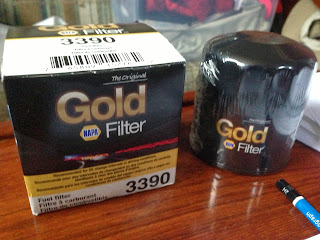I was also kind of excited, for I was packing with me, my new wonder tool. I had been coveting one for sometime. When I drew up the "Shit List" there was more than one of those wretched tasks that would require this miracle device. It has been described by many of my boating friends as a "must have". Of course I am speaking of my new Dremel.
I unlocked Corleto's companionway with the excitement of a youngster on Christmas morning. I was giddy with anticipation of plugging it into the outlet and hearing that wondrous purr of 15K+ RPMs. I needed to cut or grind something, but what?
The list beckoned.
I could see that the one thing that really needed my immediate attention was the port side chain plate. There was so much leakage it had to be done. So began my first attempt at re bedding.
 |
| The port side cabin Plate- water had been getting in. |
The nut that held the thru hull bolt came off without too much effort. A good sign. The plate came off with a little coaxing. I observed a steady drip after the plate was removed. I tapped the bolt to unseat it. Then I scurried topside to disconnect it from the shroud and clean the deck depression that the assembly had made over time. Now I truly had a hole though my deck and since it was raining, water had no trouble finding its way into the cabin. I plugged and covered the bolt hole with a piece of duct tape and took the parts below for inspection and cleaning.
 |
| With the plate and bolt removed- you can see daylight. The surfaces needed a good cleaning |
 |
| You can see the corrosion and the crud on all for the surfaces of the chain plate assembly |
The Stainless parts showed some minor corrosion and the threads of the bolt were filled with old caulking. The plate itself had water corrosion and needed to be cleaned up.
I soaked the bolt, washer and nut in some Lacquer thinner. I then took a brass tooth brush and used the thinner on the plate. The thinner seemed to loosen the rust and other crud on all the surfaces.
 |
| Wonder Tool to the rescue |
After everything had been cleaned, as close to original as possible, it was time to put it all back together.
 |
| You can see the difference the Dremel brush made on the top of the bolt. |
I had decided to use Butyl tape as the re bedding seal. It had been recommended by many. I applied it to the thru bolt, and the washer. When the bolt and nut were tightened, the butyl would squeeze into the tiny places that water seems to find. The beauty of butyl is it keeps it's malleable characteristics and is easy to remove when the time comes.
 |
| You can see the butyl tape applied on the washer and the thru bolt. |
 |
| A re installed, re bedded and re polished plate |
 |
| The re bedded, resealed and re seated thru bolt and washer assembly as seen topside. |
It sure was nice to finish up and in doing so scratch one thing off the list. Total time for the job was just under 3 hours. No bad for my first attempt. And when I left Corleto, she was dry on the inside and I had a big smile on the outside.

















